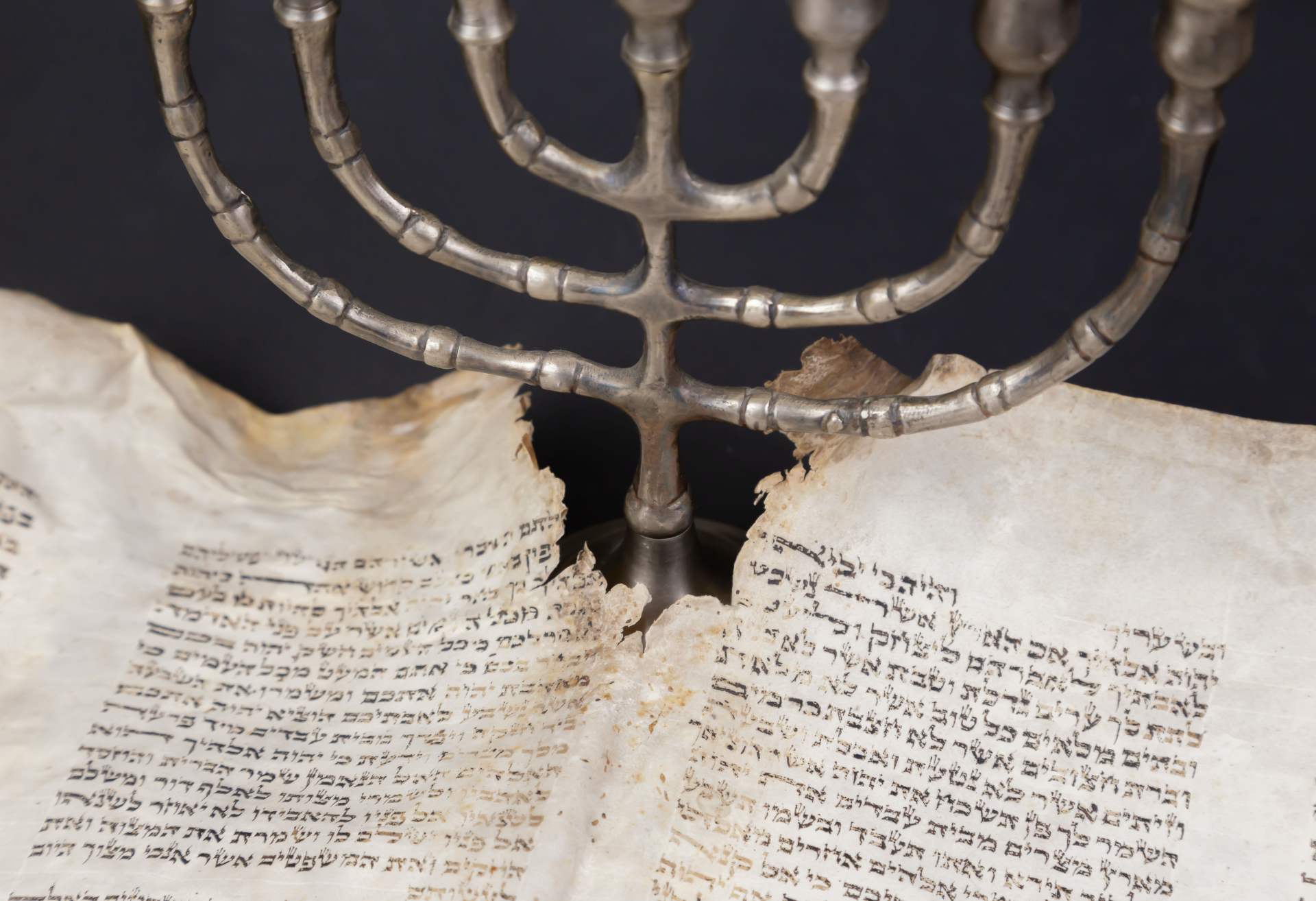
Old Testament ‘signposts’ to the resurrection
Anyone reading the Old Testament should have expected Christ to rise from the dead.
At least, that’s what Jesus appeared to tell his disciples on the road to Emmaus.
It got retired Elim minister Ian Gardner thinking.
Reading the last chapter of Luke’s Gospel I noticed something that intrigued me, he said.
Jesus was talking to his astonished disciples. That alone should grab my attention because he’d been brutally beaten, flogged, killed by crucifixion and his lifeless body left in a sealed tomb.
Now he’s left the tomb and he’s talking to his disciples about what happened to him.
Not only that, but he’s telling them everything that did happen to him was written about in the Old Testament. Not only his suffering and death, but also his burial and how he would be raised from the dead on the third day.
That really caught my attention. Where do we read that Christ would rise again after three days?
Delving into the Old Testament I found a wealth of scriptures talking about the importance of the third day.
Special ‘third-day event’ Scriptures
After the children of Israel crossed through the Red Sea they came to Mount Sinai and it was time for the big event, but what was the big event?
God was about to come down on the mountain, meet with Moses, and deliver the Ten Commandments. So he told Moses to prepare the people so that they would be ready.
The Lord said to Moses, “Go to the people and consecrate them today and tomorrow. Make them wash their clothes and be ready by the third day, because on that day the Lord will come down on Mount Sinai in the sight of all the people,” (Exodus 19:10-11).
And that’s what happened. God’s awesome presence filled the mountain as he gave them his law.
The significance of the third day in God’s calendar was highlighted again when God gave three days of preparation before he halted the waters of the flooded River Jordan.
The whole Israelite nation – over 600,000 men plus women and children – crossed over on dry ground into the promised land before the flood-waters returned (Joshua 3:2).
The prophet Hosea also commented on the ‘third day’, describing it as a day of restoration: “Come let us return to the Lord. He has torn us to pieces but he will heal us; he has injured us but he will bind up our wounds. After two days he will revive us; on the third day he will restore us, that we may live in his presence,” (Hosea 6:1-2).
When Jesus was raised from the dead bodily on the third day this was entirely in keeping with God’s ‘third-day’ programme of special events.
Death-burial-resurrection Scriptures
Other verses were signposts to what was still to come.
They show people hidden or imprisoned for three days, just as Jesus was hidden in the tomb for three days and then later appeared to his disciples.
These Scriptures all point to a three-day confinement.
The king’s cupbearer was in prison in Egypt with Joseph. He had a dream, which Joseph interpreted, and, just as Joseph said, he was restored to his previous position after three days (Genesis 40:20-21).
Joseph’s brothers were kept in custody for three days (Genesis 4 2:17).
The two Jericho spies hid in the hills for three days before returning to their camp (Joshua 2:22).
David hid for three days before receiving confirmation from Jonathan that King Saul wanted him dead (1 Samuel 20).
This reference to the ‘third day’ is easy to miss because the NIV translation uses the expression ‘the day after tomorrow’ in verse 19 instead of the third day.
And, of course, Jonah’s body was hidden in the belly of the great fish for three days before his miraculous restoration (Jonah 1:17).
The Lord Jesus himself highlighted the story of Jonah
When the Pharisees asked for a sign that he was the promised Messiah, Jesus told them: “A wicked and adulterous generation asks for a miraculous sign. But none will be given it except the sign of the prophet Jonah. For as Jonah was three days and three nights in the belly of a huge fish, so the Son of Man will be three days and three nights in the heart of the earth,” (Matthew 12:39-40).
Jonah prayed while still in the fish. His prayer of thanksgiving (Jonah 2:1-9) recalls all that had happened to him, including the prayers that he prayed.
He is celebrating a triumph of faith that worthless idols couldn’t deliver. He is rejoicing in the grace that he had received that brought him back from the grave. He came back victorious because of God’s intervention.
Yet more ‘third-day’ Scriptures speak of reprieve or deliverance from death. These include Isaac (Genesis 22), King Hezekiah (2 Kings 20) and Esther(Esther 4-5).
Even the account of creation sign-posts a ‘third-day’ resurrection. On day three of creation God made all the fruit trees on the earth (Genesis 1:11-13), so the literal ‘first fruits’ appeared on day three.
Christ is risen indeed.
Ian Gardner is an active retired Elim minister who lives in Newbury with his wife Marion. He is an enthusiast who loves to share God’s Word.
First published in the April 2022 issue of Direction, Elim’s monthly magazine. Subscribe now to get Direction delivered to your home.
Enjoy this content? Don't forget to share